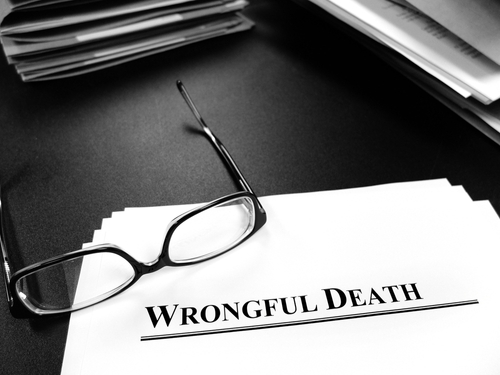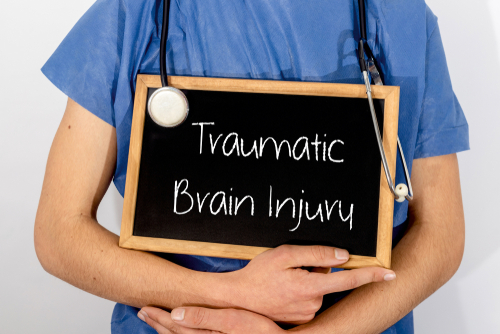A catastrophic injury stands out due to its severe and long-lasting impact on the victim’s life. Our personal injury lawyer in Schaumburg can help you with your catastrophic injury case. Unlike more common personal injuries, catastrophic injuries typically result in long-term, permanent disability or disfigurement.
These injuries disrupt the victim’s ability to lead a normal life, often preventing them from returning to work, performing daily activities, or maintaining the same quality of life as before the injury. The legal framework in Illinois recognizes the gravity of these injuries and provides avenues for victims to seek compensation that reflects the extensive and significant nature of their damages.
Characteristics of Catastrophic Injuries
Catastrophic injuries share certain characteristics that set them apart from less severe injuries. These include the extent of medical treatment required, which often involves multiple surgeries, lengthy hospital stays, and ongoing rehabilitation services. The prognosis for catastrophic injuries is usually dire, with many victims facing a future of permanent disability or the need for lifelong medical care and assistance. The financial burden associated with such injuries is substantial, not only due to medical expenses but also because of lost earnings and the potential need for modifications to the victim’s home and lifestyle to accommodate their disability.
Types of Catastrophic Injuries Recognized in Illinois
Several types of injuries are commonly recognized as catastrophic due to their profound impact on the victim’s life. These include traumatic brain injuries (TBI), which can result in cognitive impairments, physical disabilities, and emotional and behavioral changes. Spinal cord injuries, leading to partial or complete paralysis, are another category of catastrophic injury, drastically altering the victim’s mobility and independence.
Severe burns, amputations, and injuries resulting in significant disfigurement also fall under the umbrella of catastrophic injuries, each bringing its own set of challenges and long-term impacts on the victim’s life. Contact SJ Injury Law Firm for the representation you and your family need.
Legal Recourse for Victims of Catastrophic Injuries in Illinois
Victims of catastrophic injuries in Illinois have legal avenues available to seek compensation for their extensive damages. Personal injury claims in Illinois allow victims to pursue damages for past and future medical expenses, lost wages, pain and suffering, disfigurement, and loss of enjoyment of life, among others. Given the severe nature of catastrophic injuries, these claims often involve substantial compensation amounts to cover the extensive medical care and lifelong support required.
Victims need to work with legal professionals who understand the complexities of catastrophic injury cases and can effectively advocate for the full extent of compensation needed to address their long-term needs. SJ Injury Law Firm understands and has experience with catastrophic injury claims.
The Role of Negligence in Catastrophic Injury Cases
For a catastrophic injury claim to be successful in Illinois, the victim must typically prove that another party’s negligence directly caused their injury. This involves demonstrating that the responsible party failed to act reasonably, leading to the accident and subsequent injuries. Establishing negligence is crucial in catastrophic injury cases, as the extent of the damages requires a clear link to the responsible party’s actions or inactions. This process often involves thorough investigations, expert testimonies, and detailed evidence gathering to build a compelling case for the victim’s entitlement to compensation.
Navigating the Future after a Catastrophic Injury
For those affected by catastrophic injuries in Illinois, the path forward involves not only adjusting to a new way of life but also navigating the legal landscape to secure the resources needed for their ongoing care and support. The legal system in Illinois provides a framework for victims to seek justice and compensation, but the complexity of catastrophic injury cases necessitates experienced legal guidance. Victims can focus on their recovery and rehabilitation with the right support, knowing that their legal rights are being vigorously defended.
The Necessity of Legal Representation
The legal system, with its myriad of laws and procedural nuances, presents a formidable challenge to individuals without specialized legal knowledge. SJ Injury Law Firm acts as a navigator, guiding clients through this intricate environment. Their understanding of the law ensures that legal filings are accurate, deadlines are met, and the proper procedures are followed, significantly reducing the risk of costly errors.
Advocacy for Your Rights
In legal disputes, having someone to advocate for your interests is invaluable. An attorney serves as a steadfast representative committed to defending your rights. Whether negotiating settlements or arguing your case in court, they provide a voice that counters opposing parties, ensuring your side of the story is heard and considered.
Maximizing Compensation
Determining the full extent of compensation you’re entitled to can be complex. Attorneys are adept at evaluating all aspects of your claim, including current and future losses. Their negotiation skills are crucial in discussions with insurance companies and opposing counsel, aiming to secure a settlement that adequately covers your damages.
Countering Insurance Strategies
Insurance companies often employ tactics designed to minimize their payout. An attorney can recognize and counter these strategies, ensuring your claim is taken seriously. Their experience with such negotiations equips them to protect your interests and pursue a fair settlement.
Access to Resources
Attorneys have access to a network of resources that can strengthen your case. This includes expert witnesses, private investigators, and medical professionals who can provide crucial evidence and testimony. These resources can be pivotal in building a compelling argument for your claim.
Peace of Mind
Dealing with legal issues can be stressful, particularly when you’re also coping with personal, financial, or health-related concerns. SJ Injury Law Firm takes on the burden of managing your case, allowing you to focus on recovery. Knowing that a professional is handling your legal matters provides peace of mind during challenging times.
In essence, securing legal representation is critical for navigating the complexities of the legal system, advocating for your rights, and ensuring that you receive fair compensation. An attorney offers legal guidance and stands as a pillar of support, leveraging their resources and skills to advocate for your best interests.
A Final Word About Catastrophic Injuries
Catastrophic injuries represent some of the most challenging cases within the Illinois legal system due to their profound impact on the victim’s life and the extensive compensation required to address their needs. Understanding the nature of these injuries, the types of damages that can be pursued, and the importance of establishing negligence is crucial for victims and their families as they seek to navigate the aftermath of such life-altering events.
Take the First Step Towards Justice With Our Schaumburg Personal Injury Lawyer
If you’re facing the aftermath of an injury and feeling overwhelmed by the legal challenges ahead, it’s time to reach out to a team that stands by your side, ready to fight for your rights. At SJ Injury Law Firm we’re committed to guiding you through every step of your legal journey, ensuring that your voice is heard and your rights are protected. With our free consultation offer, you can discuss your case without any obligation, providing you with clarity and direction during this critical time.
Don’t navigate this complex legal landscape alone. Call our Schaumburg personal injury lawyer at (847) 434-3555 to receive your free accident consultation. Let SJ Injury Law Firm be your ally in claiming the justice your case rightfully deserves.










